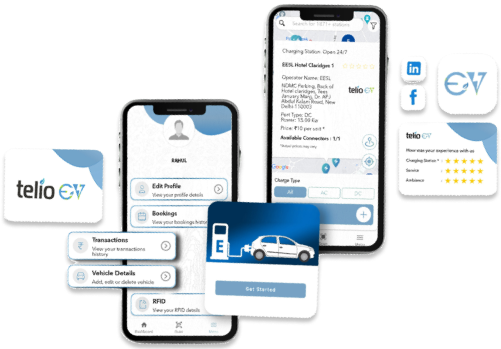The Must Know Details and Updates on OCPI
The Must Know Details and Updates on OCPI
Blog Article
Enhancing Electric Vehicle Charging with Advanced Management Software

The rapid adoption of electric vehicles (EVs) has actually demanded the advancement of efficient and easy to use charging solutions. Central to this evolution are Electric Vehicle Charging Management Software (EV CMS) and EV Charging Apps, which streamline the charging process for both operators and users.
Understanding EV Charging Management Software
EV Charging Management Software serves as a comprehensive platform that enables Charge Point Operators (CPOs) and other stakeholders to monitor, manage, and optimize EV charging stations. Key functionalities include real-time monitoring of charging stations, user authentication, payment processing, and energy management. By incorporating these functions, the software makes sure effective operation and improves the user experience.
Key Features of EV Charging Management Software
1. Real-Time Monitoring and Control: Operators can oversee the status of charging stations, track energy consumption, and address concerns without delay.
2. User Authentication and Access Control: The software manages user gain access to, guaranteeing that only authorized individuals can utilize the charging facilities.
3. Payment Processing: It assists in smooth deals, supporting different payment methods to deal with varied user preferences.
4. Energy Management: By optimizing energy distribution, the software reduces functional expenses and supports grid stability.
5. EV Charging Apps Reporting and Analytics: Comprehensive data analysis aids in notified decision-making and strategic planning for network growth.
The Role of EV Charging Apps
EV Charging Apps are developed to provide EV owners with convenient access to charging facilities. These applications provide features such as finding close-by charging stations, real-time availability updates, navigation help, and remote tracking of charging sessions. By enhancing accessibility and user engagement, these apps play a vital role in promoting the adoption of electric vehicles.
Integration with Open Charge Point Interface (OCPI)
The Open Charge Point Interface (OCPI) is a standardized procedure that facilitates interoperability in between different EV charging networks. Integration with OCPI enables seamless roaming, making it possible for users to access numerous charging networks with a single account. This interoperability improves user convenience and broadens the accessibility of charging facilities.
Benefits of Implementing Advanced Charging Solutions
- Enhanced User Experience: User-friendly user interfaces and reputable services increase customer complete satisfaction and loyalty.
- Operational Efficiency: Automation and real-time tracking reduce manual intervention, reducing operational expenses.
- Scalability: Advanced software solutions support the growth of charging networks to satisfy growing need.
- Revenue Generation: Flexible pricing models and effective payment processing open new revenue streams for operators.
Conclusion
The combination of EV Charging Management Software and user-centric EV Charging Apps is pivotal ahead of time the electric vehicle environment. These technologies not just streamline operations for service providers however likewise considerably boost the charging experience for users. As the EV market continues to grow, the adoption of such advanced solutions will contribute in fulfilling the increasing demand for effective and available charging infrastructure. Report this page